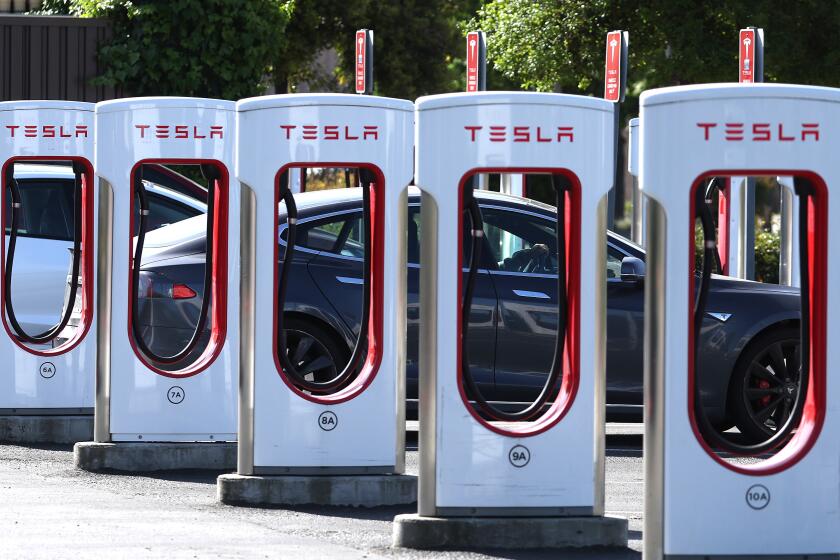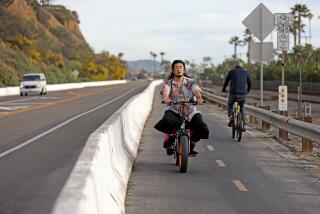L.A. drivers who ditch their cars can get $1,000 from Uber

- Share via
Uber is looking to give 175 Los Angeles drivers $1,000 each to abandon their car to use alternative methods of transportation for five weeks.
The rideshare company is expanding its One Less Car trial to Los Angeles, San Francisco, Chicago, Washington, D.C., Miami, Toronto and Vancouver.
During the trial, 175 selected participants will leave their personal cars at home and instead use other forms of transportation to get around. Participants can walk, take public transit, use rideshare companies or bike.
The trial is set for July 22 through August 25. Eligible Los Angeles participants must complete Uber’s online survey, be 18 years or older, reside within the city, have legal permission to drive, have a personal car that they use more than three times a week, a bank card and a smartphone.
Participants will need to use their smartphone to download apps for the study and take short videos of themselves documenting the experience.
California is again looking for drivers to test a new system that would replace the gas tax with a more reliable funding source.
The goal behind One Less Car is to “show that it’s possible to make the switch to a car-light lifestyle, saving both money and emissions, while contributing to more livable cities,” Uber said in a news release.
A version of the program was conducted in Australia last year. For four weeks, 58 participants gave up their cars.
During that trial, participants received transportation credits, about $870 to ride public transport, an e-bike subscription and credits for Uber, Lime and Uber Carshare. The dollar amount reflected the average yearly cost associated with owning a car in Australia.
What Uber discovered from the program was the weekly average number of trips among participants dropped slightly from 21 to 19. The average number of transportation modes used by each participant increased from just using their car to an average four methods of alternate transport.
More to Read
Sign up for Essential California
The most important California stories and recommendations in your inbox every morning.
You may occasionally receive promotional content from the Los Angeles Times.












